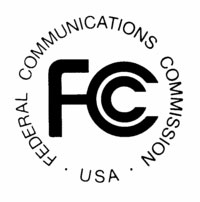
Earlier this week, a federal appeals court dealt the Federal Communications Commission a major setback in its ability to regulate the Internet, siding with Comcast that that the agency didn’t have the authority to make ISPs comply with its famous Internet Policy statement which codified “net neutrality” principles—basically, the ISPs had to treat all Internet traffic equally, regardless of the content or application. In the wake of the defeat, the FCC has now taken the unusual move of extending the deadline for comments on net neutrality (PDF). The new deadline is April 26; that lands just before a staff workshop in Seattle on April 28 that will focus on the issue.
The extension is an unusual for the FCC, but the recent court ruling regarding Comcast and net neutrality has changed the playing field, and several interested parties requested the deadline be extended so all interested parties have time to evaluate and assess the legal implications of the decision.
The FCC crafted its Internet Policy statement in 2005 in an effort to codify net neutrality and prevent a fragmentation of the Internet into have and have-not segments, where the bandwidth, content, and applications available to U.S. Internet users was dependent—in part or in whole—on the business relationships of their ISPs with large Internet companies and content providers. The policy statement was borne out of an environment where telecom operators were increasingly complaining companies like Google were getting a “free lunch” building businesses on the backs of their physical infrastructure; telcos would like to see those companies paying for access to provide services to their customers over the networks. Many ISPs have eyed preferred peering arrangements and other partnerships with Internet companies as potential new revenue streams, as well as charging consumers for top-tier access that, say, provides unfettered access to applications and services.
Consumer advocates have decried such potential arrangements as fragmentation of the Internet, where particular content and applications are only available to selected users…sometimes just those able to pay more to ISPs. Others have pointed out potential issues of censorship and restriction of information such arrangements could engender: if a cable company gets into a spat with a studio or content provider, its customers could potentially lose access to that source…and that might not just include movies and television shows but also news and significant Internet services.
The Comcast case stems from the operator forging reset packets on its network to shut down peer-to-peer file sharing applications, ostensibly under the aegis of “network management.”
In the past, companies like Google have indicated they would pursue antitrust complaints with the U.S. Justice Department if “something bad happened” with regard to ISPs violating net neutrality principles.


